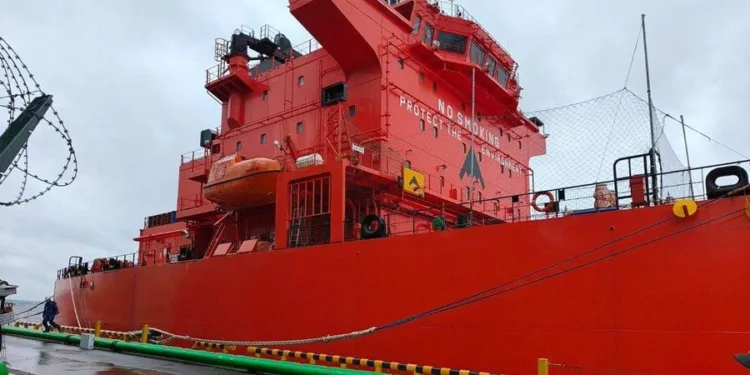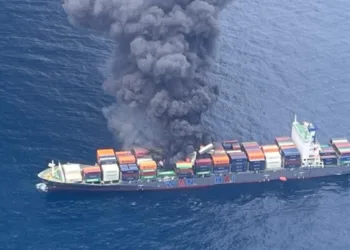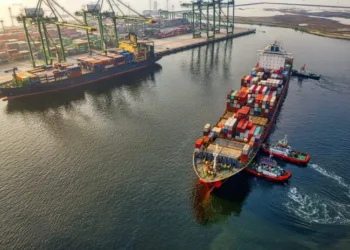An explosion aboard the Greek-owned LPG carrier Eco Wizard at Russia’s Ust-Luga port triggered an ammonia leak, prompting the evacuation of the 23-person crew and an emergency response operation. The Russian Transportation Ministry confirmed the incident on Sunday, describing it as a “minor leak,” but reports indicate the blast was significant enough to halt port operations and raise concerns over vessel safety.
The explosion occurred during cargo operations at Ust-Luga, a key Russian energy export hub on the Baltic Sea in the Leningrad region. The cause remains under investigation, with speculation ranging from technical malfunction to possible sabotage. No casualties have been reported.
The Marshall Islands-flagged 2024-built Eco Wizard had arrived from Antwerp on July 3, according to tracking data. The 40,000 cu m vessel is listed as owned by Greece’s StealthGas.
Emergency teams, including divers, have been deployed at Ust-Luga to assess the vessel and prevent further leakage. The port’s loading operations were suspended, and local authorities have placed nearby facilities on alert. A diving inspection is scheduled to determine the extent of the damage to the vessel’s hull and cargo systems.
Regional governor Alexander Drozdenko said that the ammonia leak posed no immediate environmental threat. However, Russian transport minister Roman Starovoit convened a special briefing on the matter, underscoring the significance of the incident amid ongoing geopolitical tensions and continued enforcement of maritime sanctions.
The incident is the sixth explosion this year involving vessels linked to Russian trade, and the second in as many weeks. In late June, the suezmax tanker Vilamoura, operated by Greece-based TMS Tankers, also suffered a blast after calling at Russian ports, while carrying around 1m barrels of crude.
An explosion and ammonia leak was reported at Eco Wizard tanker in Russian Ust-Luga
Russian transportation ministry reported a “minor leak of liquid ammonia during a loading incident.”
According to Russian Telegram channels, the “incident” took place as ammonia was being… pic.twitter.com/LqPK8ckegd





















